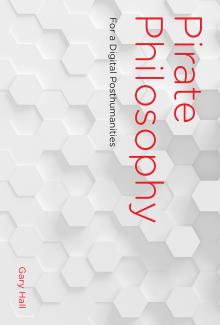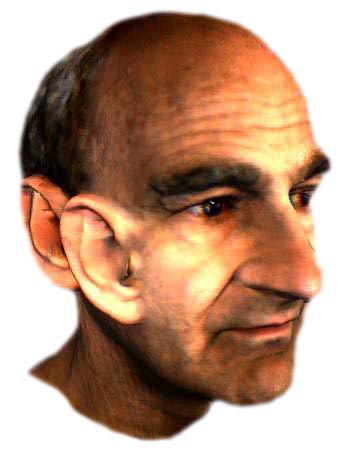New Book: Pirate Philosophy
 Tuesday, May 10, 2016 at 11:34AM
Tuesday, May 10, 2016 at 11:34AM ---
"We find ourselves in a time of riots wherein a rebirth of History, as opposed to the pure and simple repetition of the worst, is signalled and takes shape" - Alain Badiou
It is these questions that form the starting point for this book’s engagement with a range of theorists and philosophers, operating in some of the most exciting areas of the humanities today. They include Lev Manovich (the digital humanities), Rosi Braidotti (new materialism), Bernard Stiegler (posthumanism), and Graham Harman (object-oriented ontology). Drawing critically on phenomena such as the peer-to-peer file-sharing and the anticopyright pro-piracy movements, Pirate Philosophy explores how we can produce not just new ways of thinking about the world, which is what theorists and philosophers have traditionally aspired to do, but new ways of actually being theorists and philosophers in this “time of riots."
The book’s opening chapter sets the scene with an account of the politics of online sharing in relation to the struggles against the current intellectual property regime associated with Anonymous, LulzSec, Aaron Swartz and the “academic spring” of 2012. It discusses Creative Commons; the open access, open source and free software movements; and the difficulty of forging a common, oppositional horizon given these struggles and movements do not share a common idea of the Commons. In the chapters that follow Pirate Philosophy proceeds to ask how, when it comes to our own scholarly ways of creating, performing and sharing knowledge and research, can we operate in a manner that is different not just from the neoliberal model of the entrepreneurial academic associated with corporate social networks such as Facebook and LinkedIn, but also from the traditional liberal humanist model that comes replete with clichéd, ready-made (some would even say cowardly) ideas of proprietorial authorship, the book, originality, fixity and the finished object?.
Of course, many theorists are currently challenging the tyranny of the human with an emphasis on the nonhuman, the posthuman, the postanthropocentric, along with the crisis of life itself that is expressed by the Anthropocene. Yet such “posttheory theories” continue to remain intricately bound up with humanism and the human in the very performance of their attempt to think beyond them, due to the approaches they have adopted in response to the question of the politics of copying, distributing, selling and (re)using theory. This is to some extent inevitable given the lack of antihumanist alternatives to publishing either on a “copyright… All rights reserved” or open access and Creative Commons basis that are institutionally and professionally recognized. Nevertheless, Pirate Philosophy endeavors to move the analysis of the human and nonhuman on by raising a question that is also an exhortation: How, as theorists and philosophers, can we act differently – to the point where we actually begin to take on board and assume some of the implications of the challenge that is offered by theory and philosophy to fundamental humanities concepts such as the human, the subject, the author, copyright, and the Commons, for the ways in which we live, work, and think? How, in other words, can we act as something like pirate philosophers in the sense of the term’s etymological origins with the ancient Greeks, where the pirate is someone who tries, tests, teases, and troubles, as well as attacks? Might doing so be one way for us to try out and put to the test new economic, legal and political models for the creation, publication and circulation of knowledge and ideas, models that are more appropriate for our postcrash sociopolitical situation?










